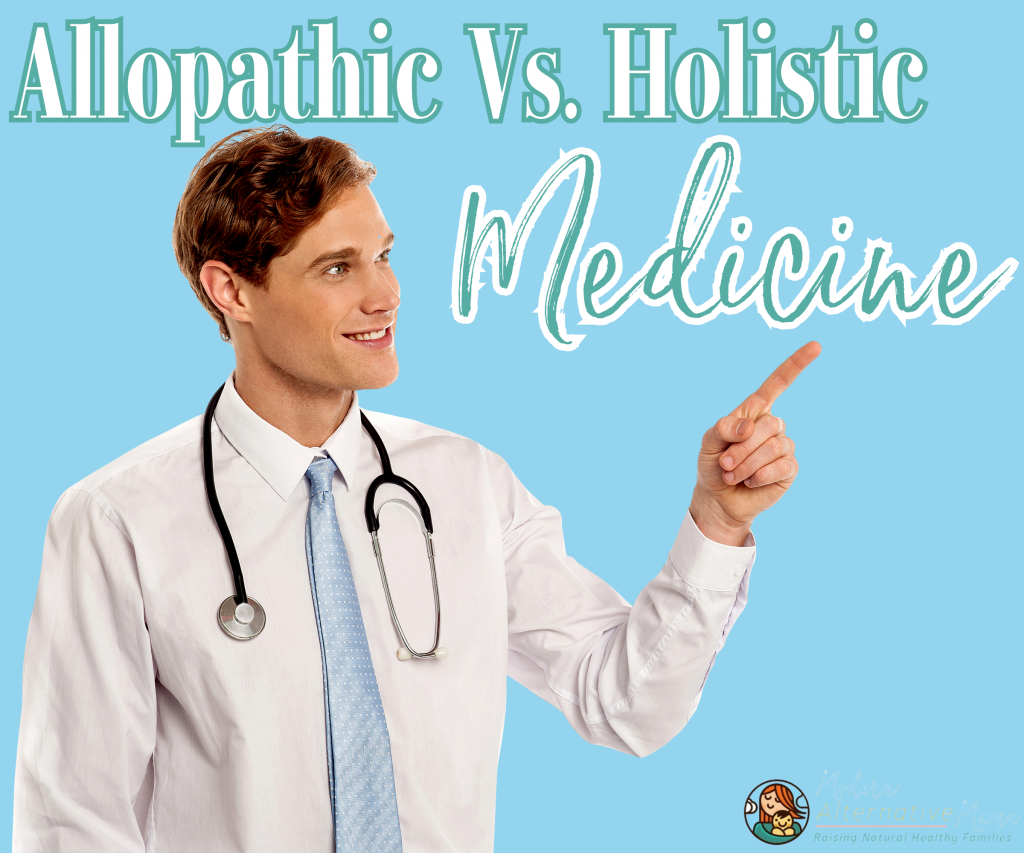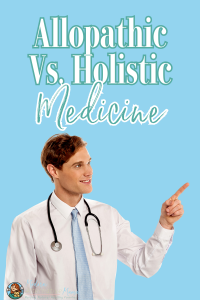There is a time and place for everything, even allopathic medicine. Personally, I avoid allopathic medicine. I may consider allopathic medicine if I’ve exhausted all potential natural alternatives without relief, but for now, I avoid it because I have been a victim of their approach. With the advancements in allopathic medicine, it still took me eight years to get diagnosed with a life-altering condition that changed everything – complex regional pain syndrome.
The allopathic system never discussed my sleep quality, diet, water consumption, stress levels, etc. Instead, they gave me what started as a handful of medications and, within two short years, turned to 26 pharmaceutical drugs and over a dozen minor and major surgeries.
Ultimately, I was told nothing could be done for me, and I was given a script to see a psychiatrist who told me my tattoos made me dramatic, and the pain I had been experiencing since I was 14 years old was all in my head. I was told I would not be allowed to have the treatment, which, at the time, was my only hope of remission.
Fast-forward a few years, and I started looking at the holistic approach. Instead of treating each symptom with a drug, I tried to determine why each symptom was happening and get to the root cause. After focusing on the why (in my case, inflammation and autoimmunity), I soon made many changes that would lead me to remission in 2019.
The difference between the allopathic and holistic medicine approaches is night and day. The allopathic approach was killing me and making me much worse, but the holistic approach saved my quality of life on more occasions than one.
Allopathic Vs. Holistic Medicine
For clarification purposes, let me explain the differences between the two approaches. To be fair to both approaches, we need a common ground ailment. Let’s pretend you’re like me and are one of the 35 million Americans who experience migraine headaches. As someone who has suffered from migraines since I was a teenager, I can personally account for my experiences with both medical approaches, so let me point out the differences.
Allopathic Medicine
When you’re a migraine sufferer in the allopathic medical system, you usually approach your primary care provider with the initial complaint. Despite your primary care provider having seven years of medical school and residency experience, they feel unequipped to discuss such a common ailment, so they send you to a neurologist.
The neurologist will ask you a series of questions, like: What does your pain feel like? Is there light or sound sensitivity with your migraines? Do you experience nausea with your migraines? How many migraines do you have per month?
The neurologist doesn’t focus on the why. Why is the patient having these symptoms? Are these symptoms triggered by food sensitivities, artificial fragrances, mold exposure, dehydration, an electrolyte imbalance, a hormone imbalance, etc.? Notice how the questions aren’t directly relevant to the concern but are only asked to determine which pharmaceutical drug they will prescribe.
Once the neurologist’s questions have answers, they’ll recommend over-the-counter medications like acetaminophen or ibuprofen. If the neurologist takes your complaints seriously, they may offer treatments like Sumatriptan and Botox injections. Then, in my experience, it’s just a matter of time before the side effects occur and symptoms worsen. Then, it’s not long until you’re off to see another specialist, and the vicious cycle continues. In other words:
- The doctor prescribes medication for the symptoms, not knowing any relevant history.
- The medication causes side effects, and the problem persists; another pill is prescribed for the side effects of the original prescription.
- The original complaint worsens, and side effects make life unbearable for the patient; the doctor claims it’s all in their head. The doctor sends the patient for a psych evaluation.
- The patient feels even worse and is now prescribed psychiatric medication.
What has always bugged me about allopathic medicine is the length of time they think it takes a doctor to diagnose and treat a problem. According to several studies, most physicians are only with their patients for 15 minutes (or less) and don’t allow them to express their concerns fully without interruption (1,2). It almost seems like a one-sided series of appointments, and quite frankly, it is. The concern is rarely addressed correctly during the initial appointment, resulting in several follow-up appointments, just as short as the initial visit. In my experience, it goes like this:
You have a headache? Take this!
Oh, did that upset your stomach? Take this too!
Oh man, did that affect your neurological performance? It’s okay, take this!
Oh, snap! Are you having chest pains now? No worries, this will do the trick!
Oh, all that, and you’re still getting headaches? As a last resort, try this. This will probably work, so we didn’t recommend it initially.
It almost seems like allopathic medicine is a revolving door dependent on sick patients returning for more. At the end of the appointment, nothing they’re doing is fixing the problem; they’re just bandaiding it while the root cause continues festering.
Holistic Medicine
When you’re a migraine sufferer in the holistic medical system, you usually approach your primary care provider with the initial complaint. Now, who you approach may be different, as even holistic medicine has several types of doctors like Integrative Medical Doctors (MDs), Doctors of Chiropractic Medicine (DCs), Doctors of Naturopathic Medicine (NDs), Chinese Herbalists, and Ayurveda practitioners.
Let’s focus on the most commonly used practitioners in holistic medicine – naturopathic doctors. First and foremost, licensed naturopathic doctors are educated in the same basic sciences as an MD. Naturopaths go to school and residency just like an MD; the only difference is naturopathic doctors also study holistic and nontoxic approaches with a strong emphasis on disease prevention and optimizing wellness.
When you visit your naturopath doctor, they will ask you questions like: Are you noticing any of these symptoms occurring after eating specific foods? How is your diet? Are you skipping meals? How much sleep are you getting each night? Do the symptoms worsen depending on the amount of sleep you get? Are you exercising? How much water are you drinking? How are your stress levels? Have you noticed a mildew-like smell in any of the rooms in your home?
Notice how these questions directly relate to the concern and help focus on the why. They’re not looking at just the symptoms (the migraines); they’re looking at the whole body and picture, trying to find the root cause. Instead of determining what they can prescribe to you for the rest of your life, they’re focused on ensuring the reason the migraines occur goes away forever. In other words:
- The doctor starts by asking background questions such as diet, sleep quality, exercise routine, water consumption, or stress levels.
- The doctor looks at the body as a whole, considers each symptom separately, and looks for an underlying cause.
- The doctor uses food, herbs, and natural alternatives to support the body in healing itself through balance.
- The patient starts feeling relief.
Of course, finding the right treatment can still take some time. Often, a naturopath will take blood work to ensure the migraines aren’t a direct result of nutritional deficiencies, hormone imbalances, electrolyte imbalances, etc. While waiting to find the root cause of the problem, that doesn’t mean the patient needs to suffer. That’s why the naturopath may recommend natural remedies for migraines like ginger, peppermint, and lemon balm to manage the migraine symptoms as the root cause is determined.
Mind you, unlike the 15-minute allopathic approach, initial naturopathic visits are typically one to two hours. During the initial intake appointment, your health habits are assessed, recommendations are made, the course of treatment is explained, and any questions the patient has are answered (3). These initial appointments are so extensive they will often ask about where you grew up and what the conditions were in your home as a child, just to get a complete picture of your toxin load and relevant medical history. After the initial visit, follow-up appointments can last 30 to 60 minutes. It’s almost as if the holistic medical approach actually wants the patient to recover.
Looking for a naturopath doctor? Use the American Association of Naturopathic Physicians, naturopathic doctor finder, to find a licensed ND near you! You can even narrow your search by choosing “offers insurance” to find doctors who take insurance.








According to lab results, I have high ldl. Dr. wants me to take zetia. Not a fan of meds and have discussed this with dr and staff many times. They are apathetic. Anyway, I take citrus bergamot already, should I add red yeast rice too? Only bee on the the bergamot for two months.
I’m so sorry to hear about your high LDL levels, Cleo. Although I can’t give medical advice, I can offer guidance to promote heart health. I highly recommend our blog, 7 Ways to Support Heart Health Naturally. This blog includes some product recommendations that may benefit your wellness journey. I hope this helps and that you can get your levels controlled. 🙂